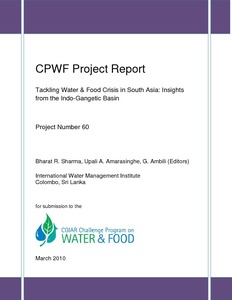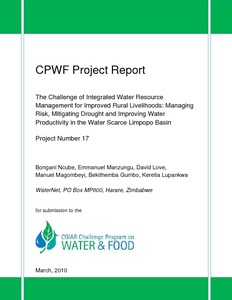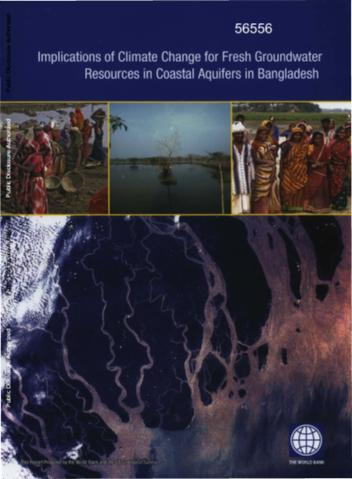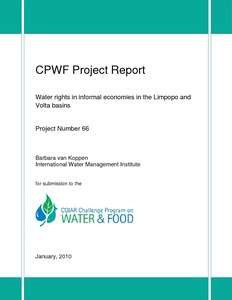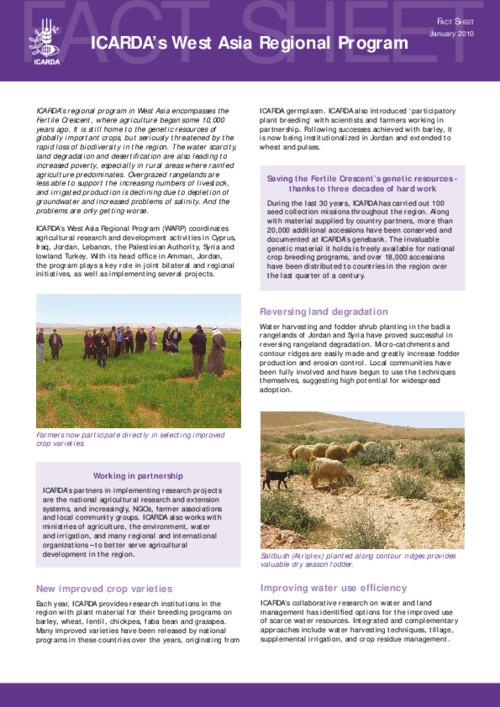Tackling water and food crisis in South Asia: Insights from the Indo-Gangetic Basin
CPWF-IWMI “Basin Focal Project for the Indus-Gangetic Basin” is an initiative by the CPWF, to
identify steps to be taken towards integrated management of the IGB’s water and land resources
to improve productivity and ensure future sustainability of all production and ecosystems in the
basin. The project was developed with the objective of conducting basin-wide analysis of the
conditions, constraints and opportunities for improving agricultural water productivity and

